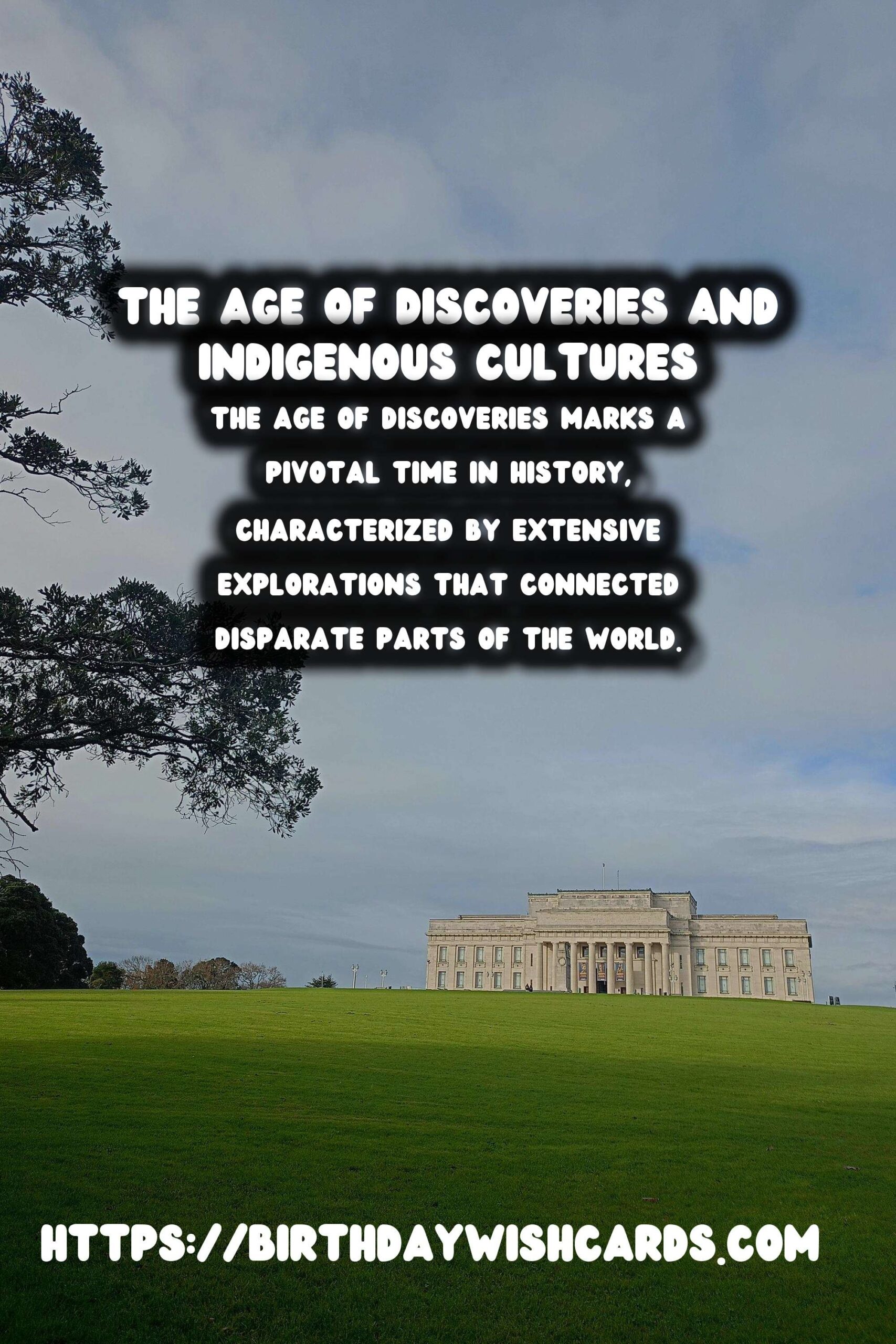
The Age of Discoveries marks a pivotal time in history, characterized by extensive explorations that connected disparate parts of the world. This era, spanning from the 15th to the 17th century, is often celebrated for broadening horizons, fostering global trade, and increasing knowledge about the planet. However, its impact was double-edged, especially concerning indigenous cultures encountered by explorers. This article dives deep into how these encounters changed the social fabric, economies, and lives of indigenous peoples worldwide.
The Era of Extensive Exploration
Kicking off with the exploratory voyages of figures like Christopher Columbus and Vasco da Gama, the Age of Discoveries expanded European territorial and commercial ambitions. Driven by a desire for new trade routes, wealth, and the spread of Christianity, explorers ventured into unknown territories. This exploration was not merely about physical land acquisition but also about cultural impacts on the indigenous populations discovered.
Initial Encounters and Indigenous Responses
Upon encountering indigenous societies, explorers’ first impressions were often marked by misunderstanding and underestimation. While Europeans regarded cultures in Africa, Asia, and the Americas as primitive, indigenous communities like the Aztecs and the Incas had established complex societies with their own political systems, arts, and economies. The initial response of indigenous people ranged from hospitality to resistance. However, the repercussions of these encounters soon led to long-lasting changes.
Impact on Societies and Cultures
The introduction of European religion, languages, and governance systems had profound effects on indigenous cultures. The spread of Christianity affected indigenous spiritual beliefs, leading to the loss of traditional religious practices. Simultaneously, European languages often became dominant, overshadowing numerous native tongues. Traditional social structures underwent significant transformations as indigenous systems were often replaced or integrated into colonial models.
Economic Transformations
One of the most significant impacts of the Age of Discoveries on indigenous cultures was economic. The arrival of Europeans introduced a capitalist economy to traded goods and natural resources. Lands were reappropriated for resource extraction, disrupting indigenous agricultural practices. Moreover, the imposition of the encomienda system subjected many indigenous populations to forced labor. These changes not only degraded traditional economies but also impoverished indigenous communities.
Demographic Impacts and Disease
Perhaps the most significant impact on indigenous populations was demographic due to the introduction of diseases. Indigenous people had no immunity to diseases such as smallpox, influenza, and measles, brought by Europeans. These outbreaks led to a catastrophic decline in indigenous populations, severely impacting their societies and economies. Some estimates suggest that up to 90% of the population in some areas perished due to these pandemics.
The Resilience and Adaptability of Indigenous Peoples
Despite the transformative changes and challenges, indigenous cultures demonstrated resilience. Many adapted their practices, integrated new influences while retaining their core identities, and resisted colonization in various ways. This adaptability helped preserve indigenous culture, even under the weight of colonization and globalization.
Modern Reflections on the Age of Discoveries
Today, the Age of Discoveries is seen through a more critical lens, recognizing its dual legacy. While it enabled global connections, it also ushered in a period of colonization with lasting negative impacts on indigenous peoples. Modern movements focus on redressing historical injustices and acknowledging the contributions and rights of indigenous cultures. Understanding this dual legacy is vital for fostering intercultural dialogue and advancing global social justice.
In conclusion, the Age of Discoveries left an indelible mark on the world, shaping societies in profound ways. The impacts on indigenous cultures, while often adverse, also highlight the strength and resilience of these communities in surviving through centuries of challenges and changes. As we move forward, acknowledging and learning from these histories is crucial in creating a more equitable world.
The Age of Discoveries marks a pivotal time in history, characterized by extensive explorations that connected disparate parts of the world. Despite the transformative changes and challenges, indigenous cultures demonstrated resilience. 
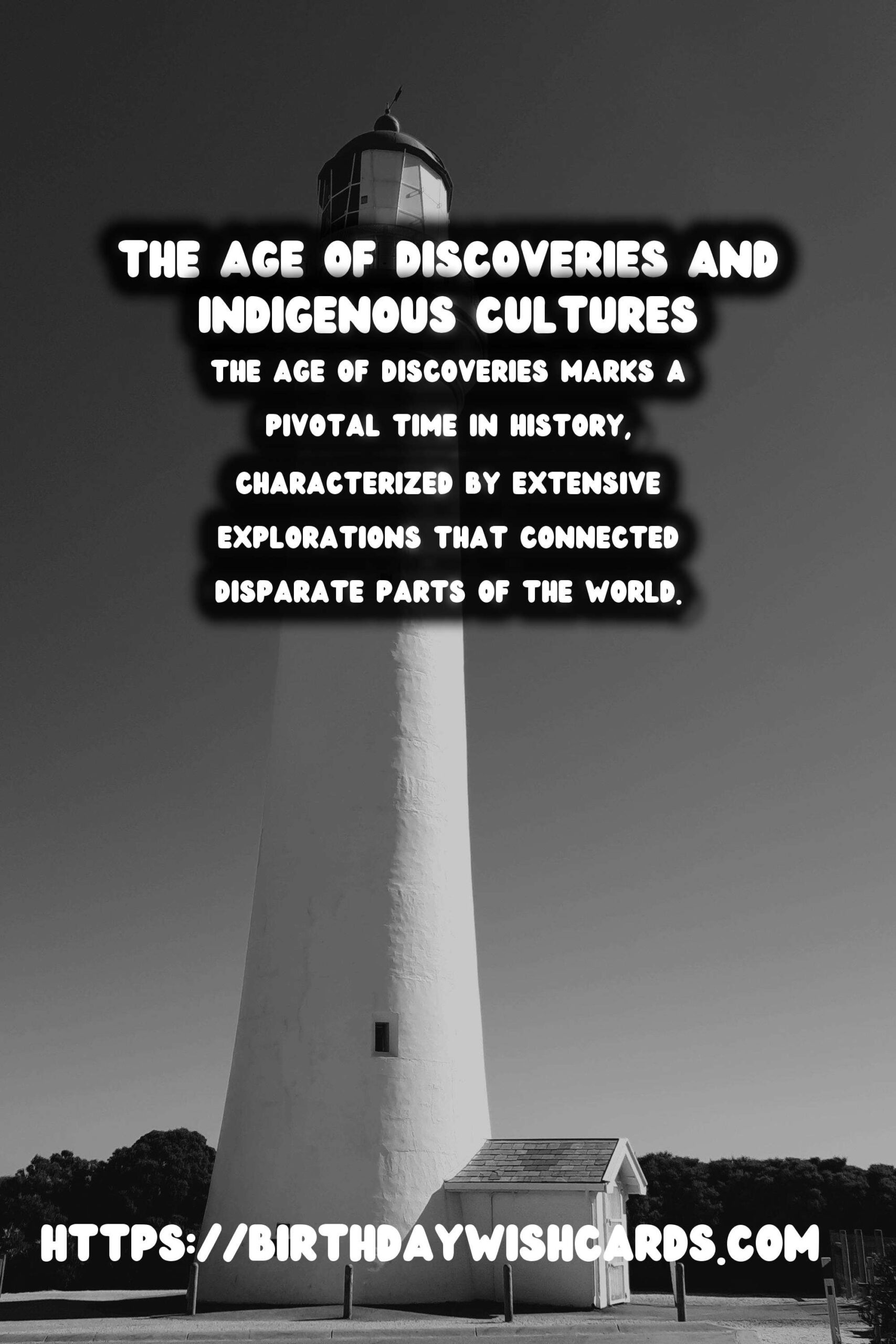
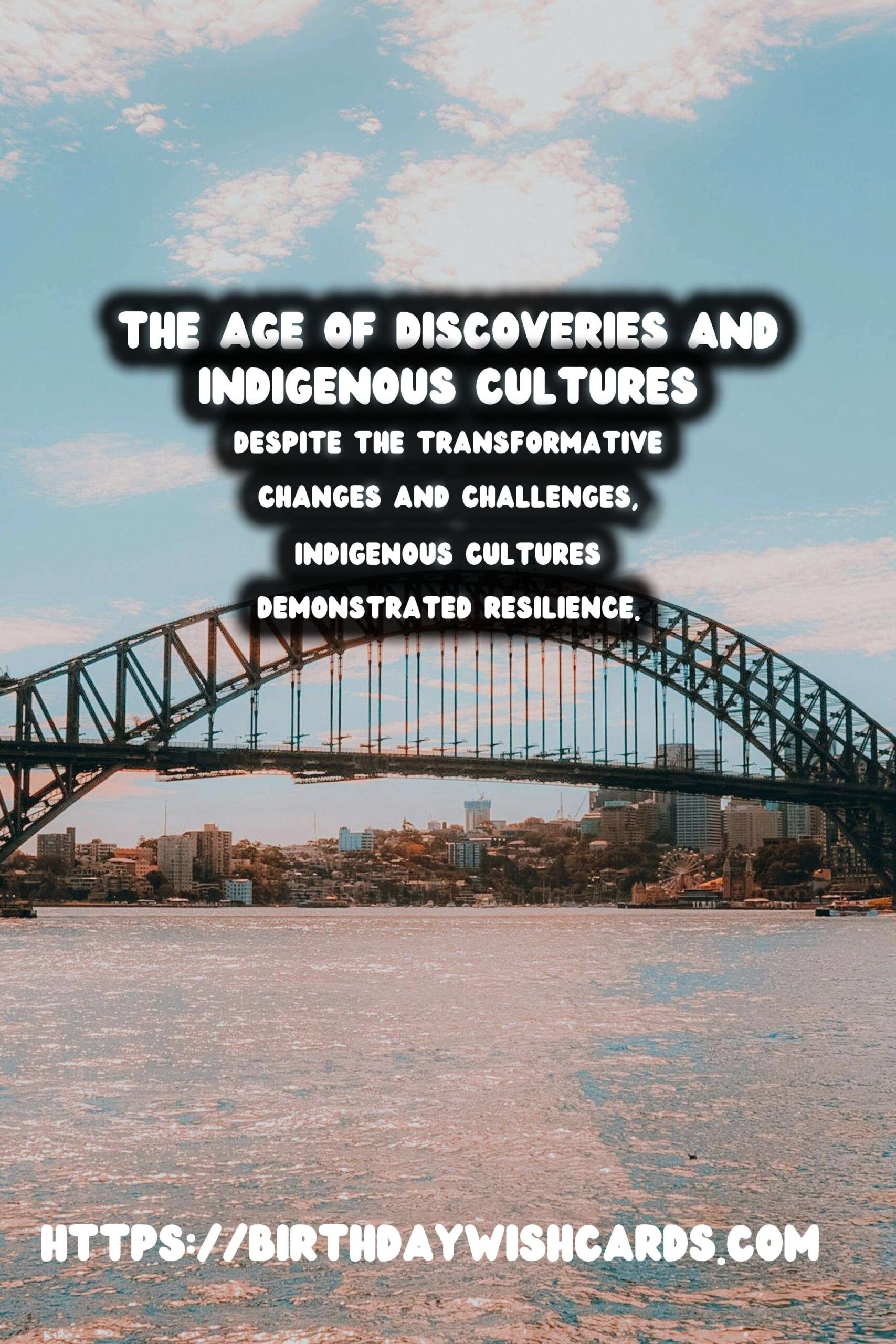
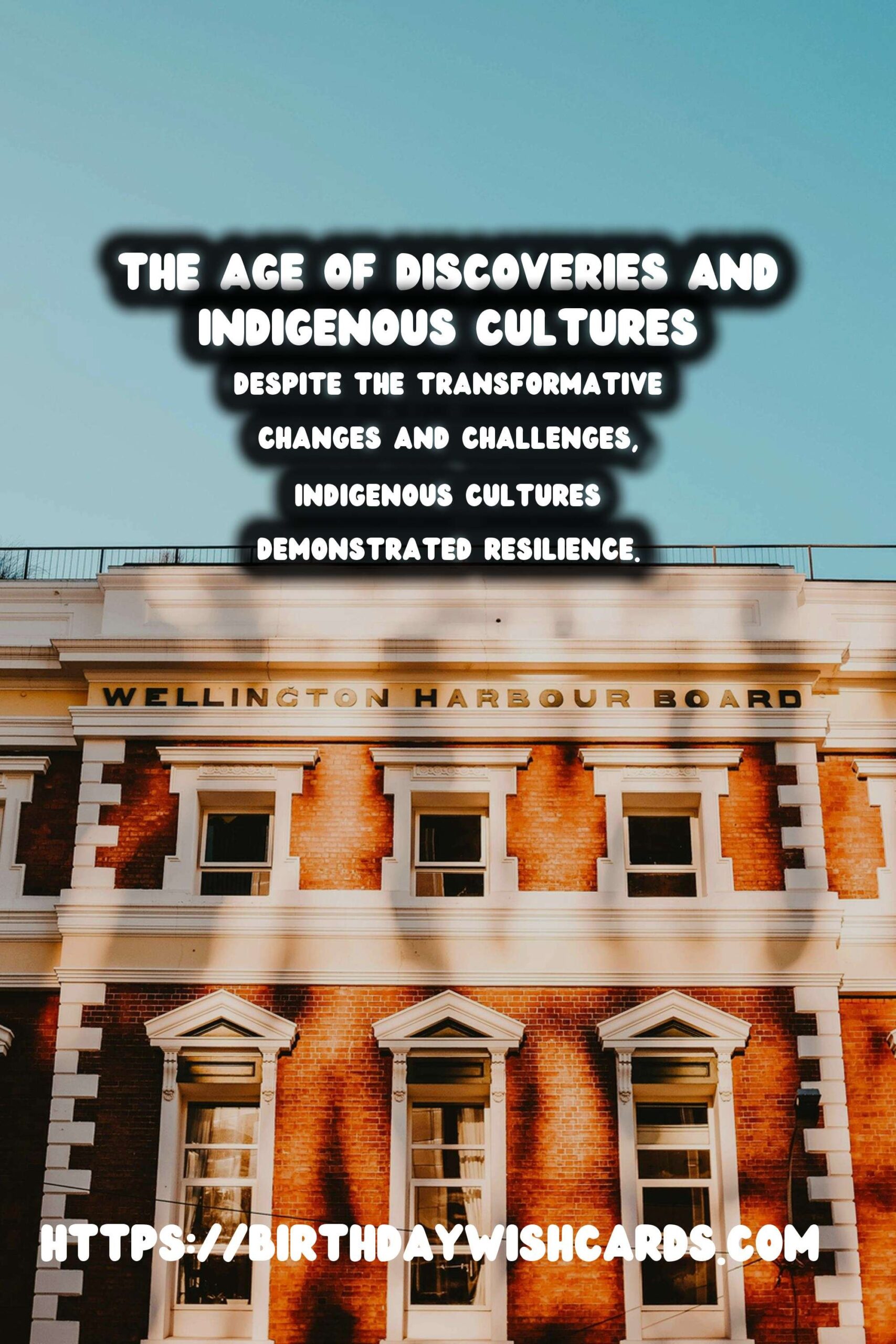
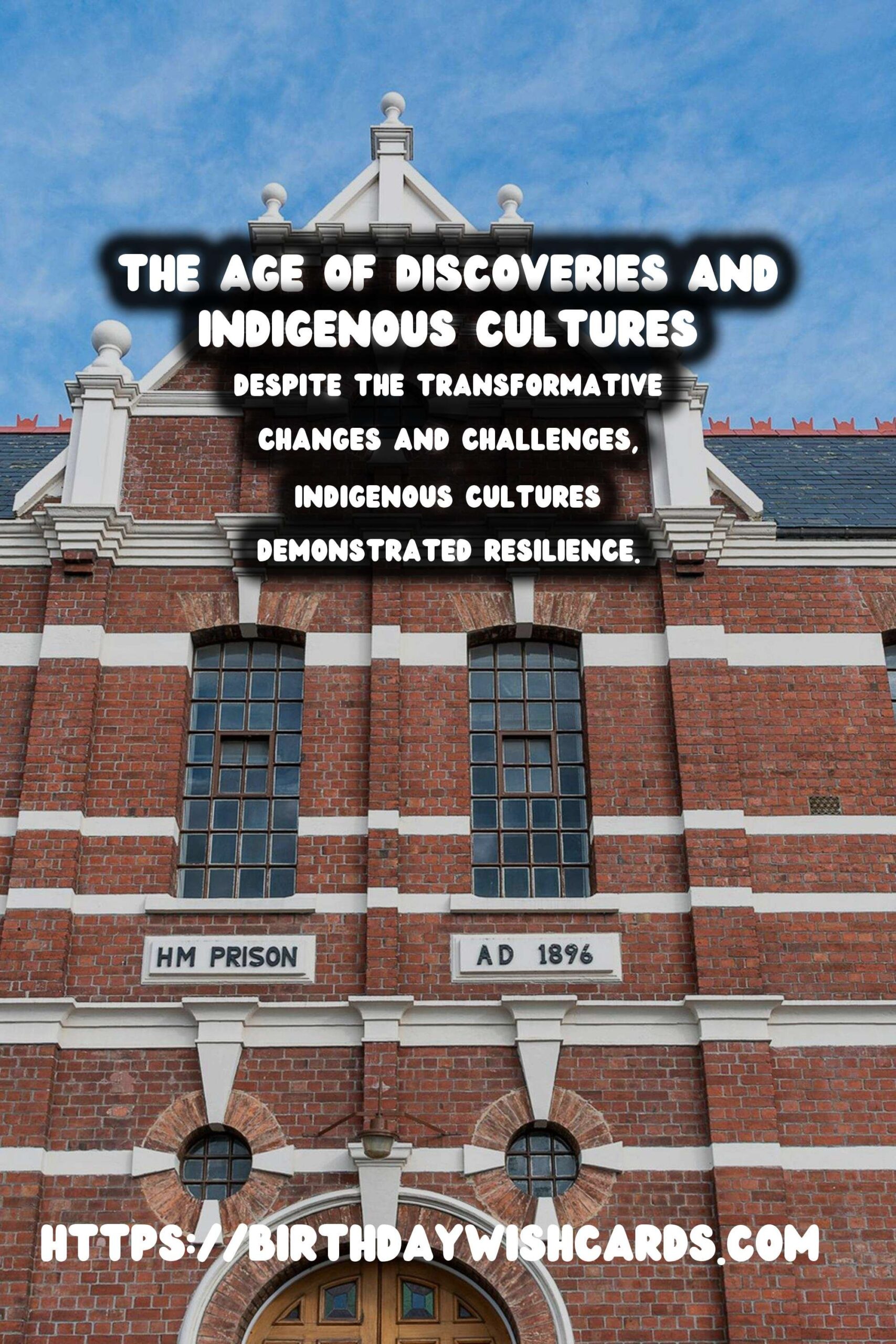
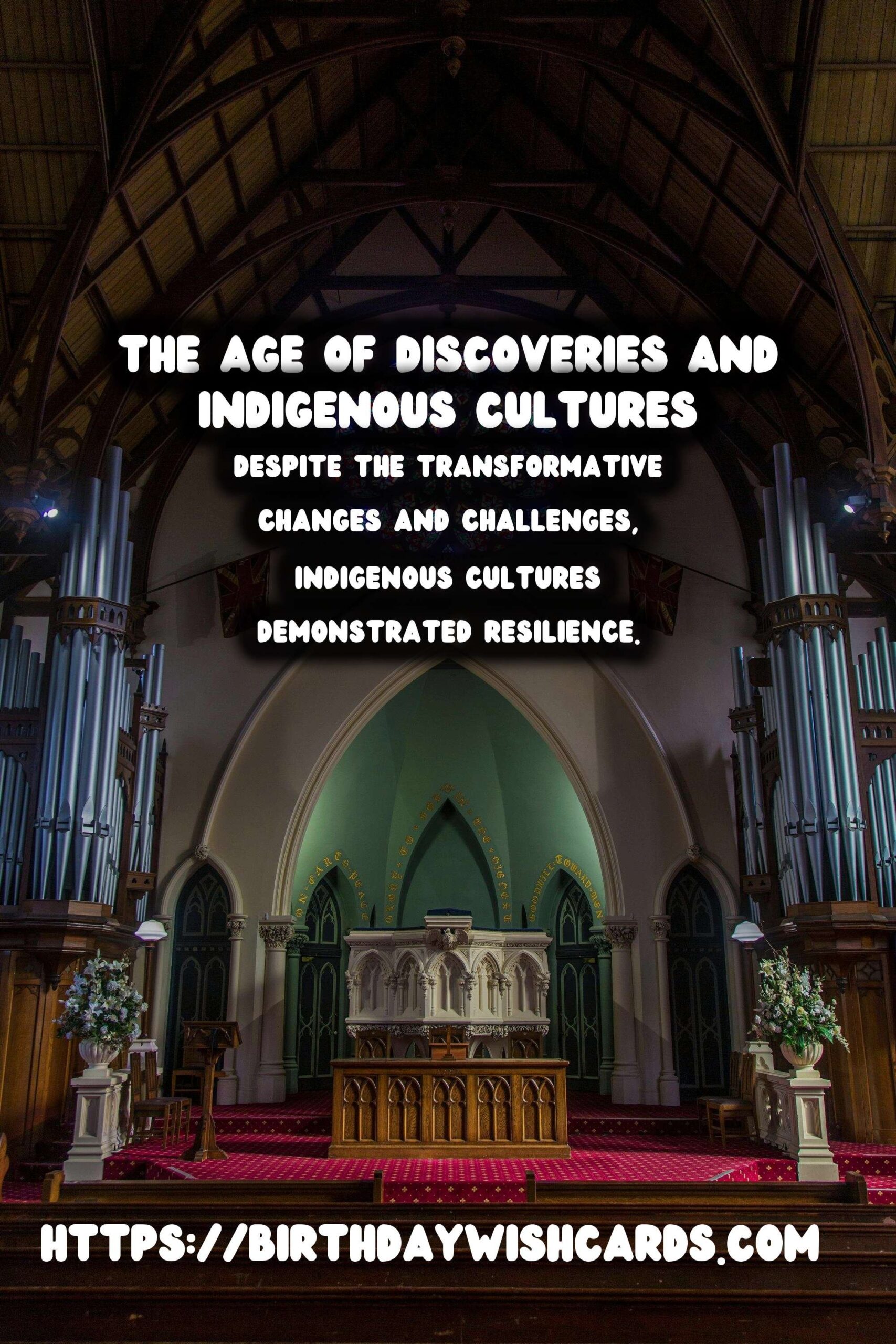
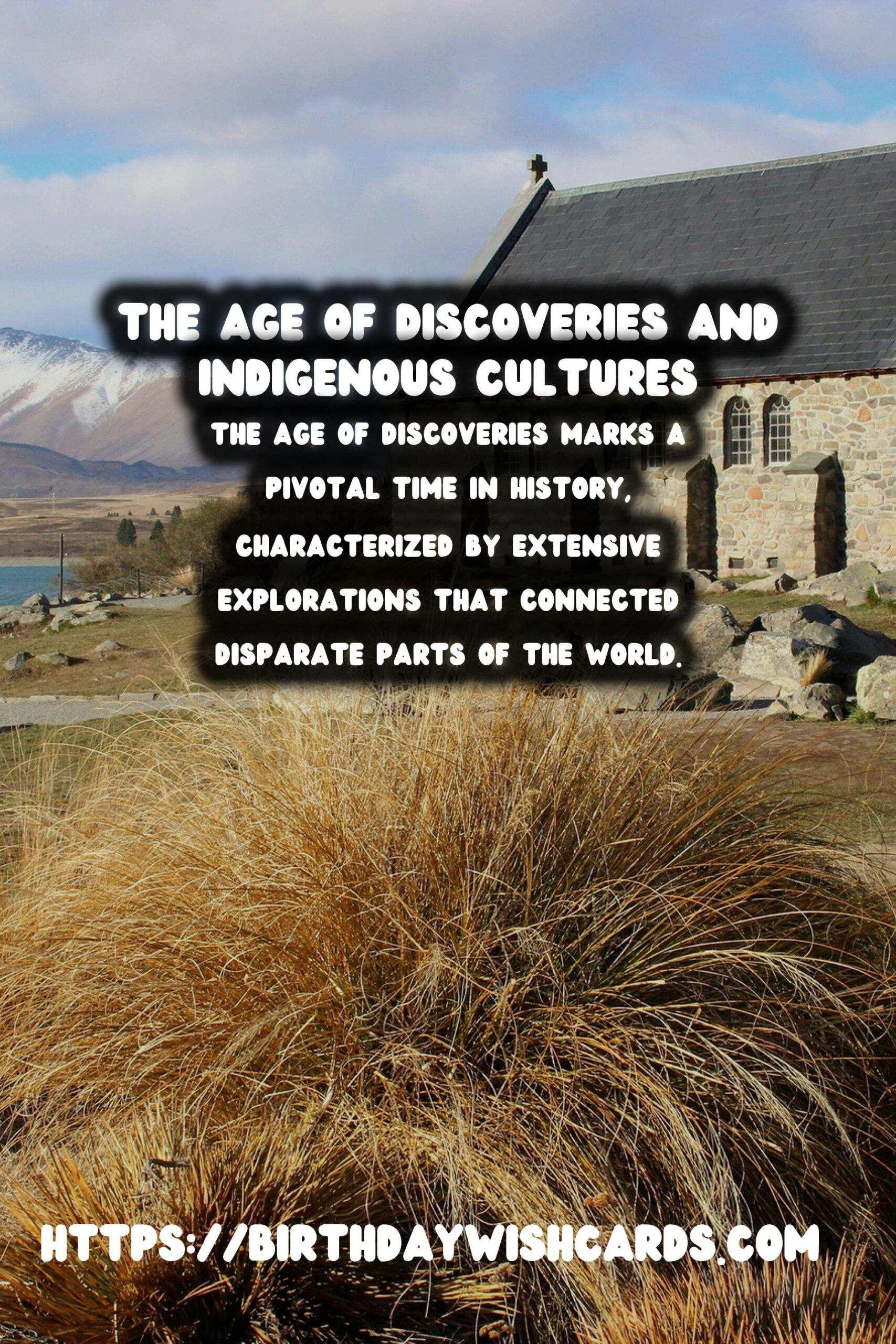
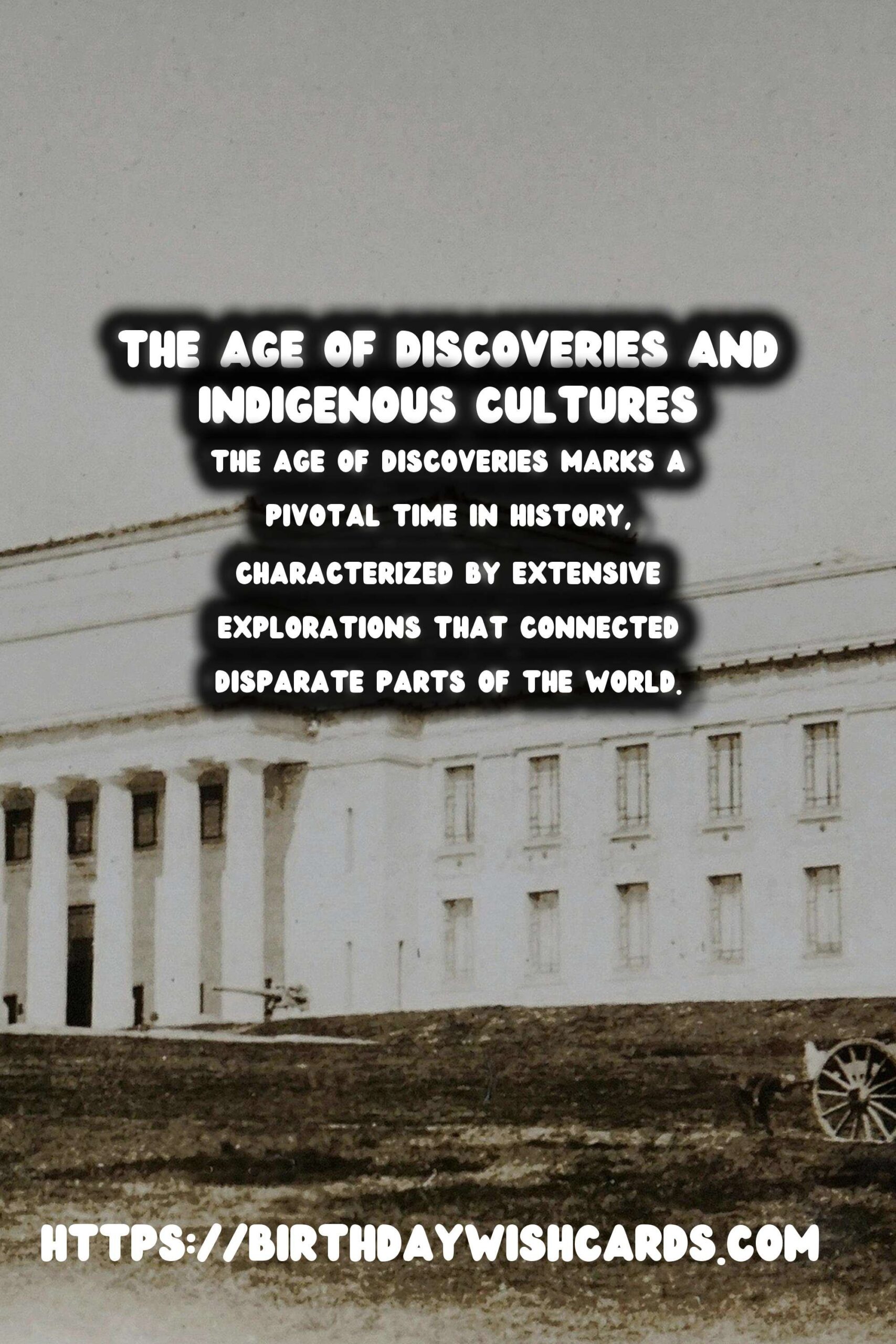
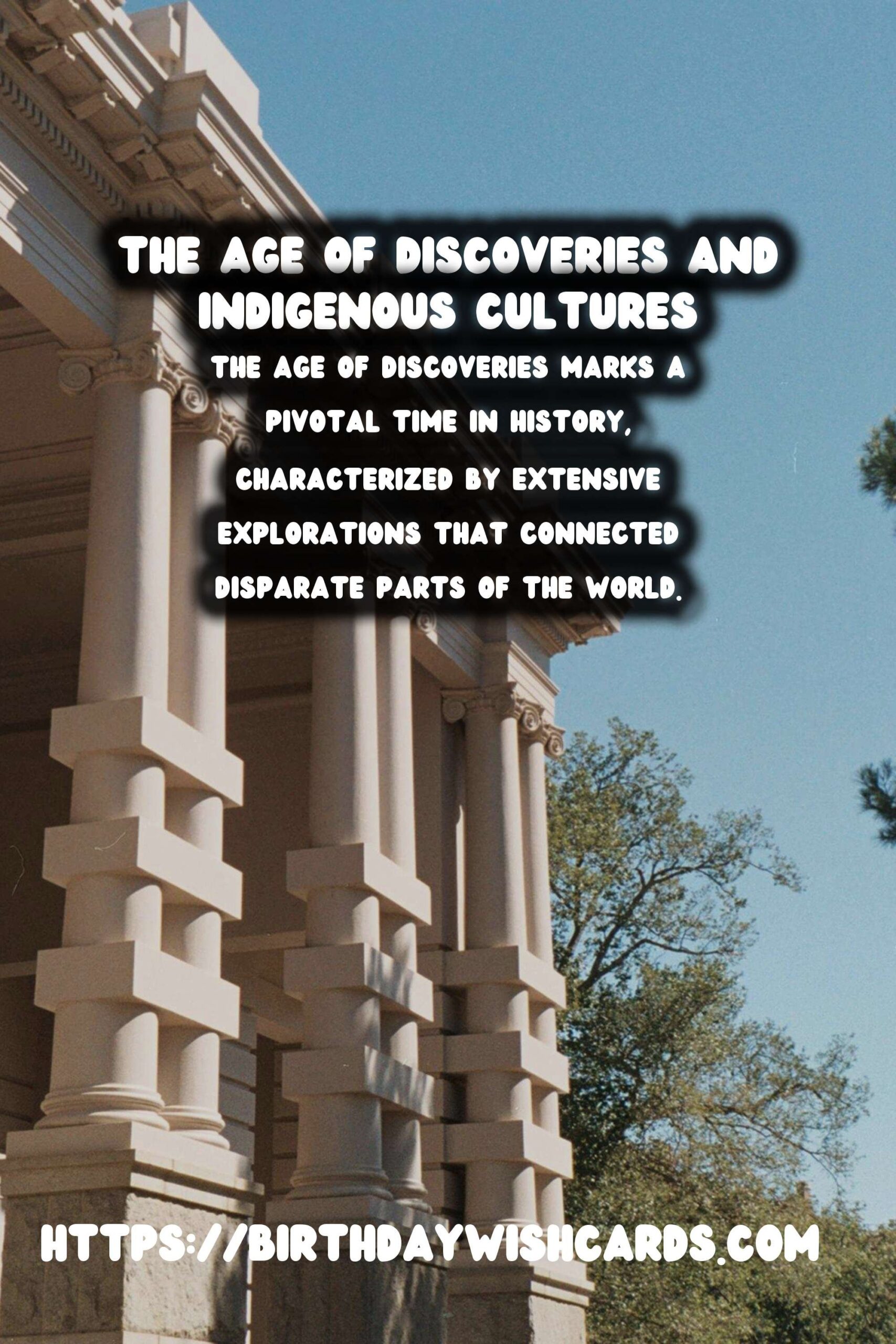
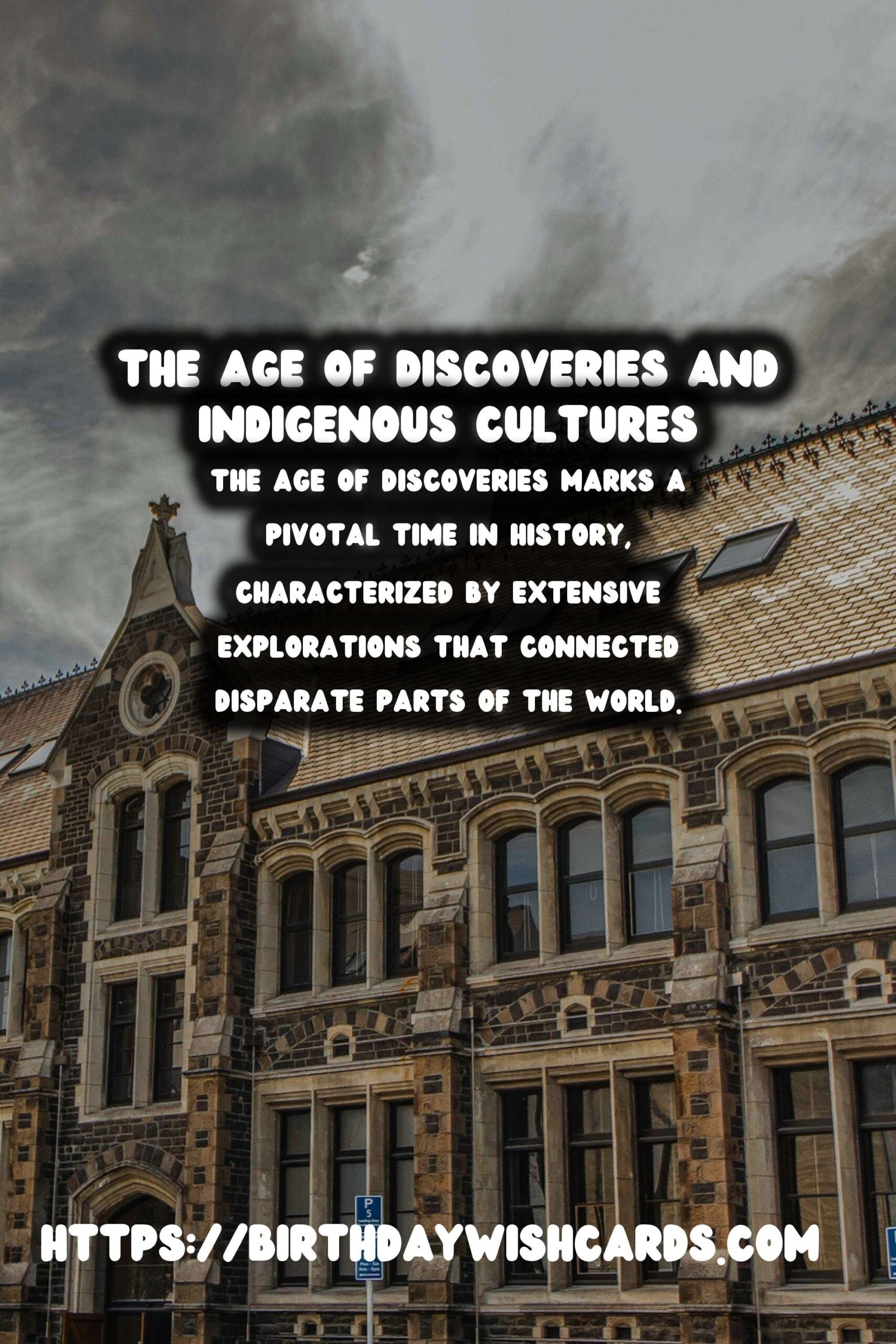
#AgeOfDiscoveries #IndigenousCultures


